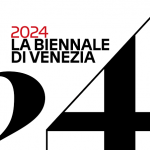
2024 Budget: Cutting the Excesses of National Assembly
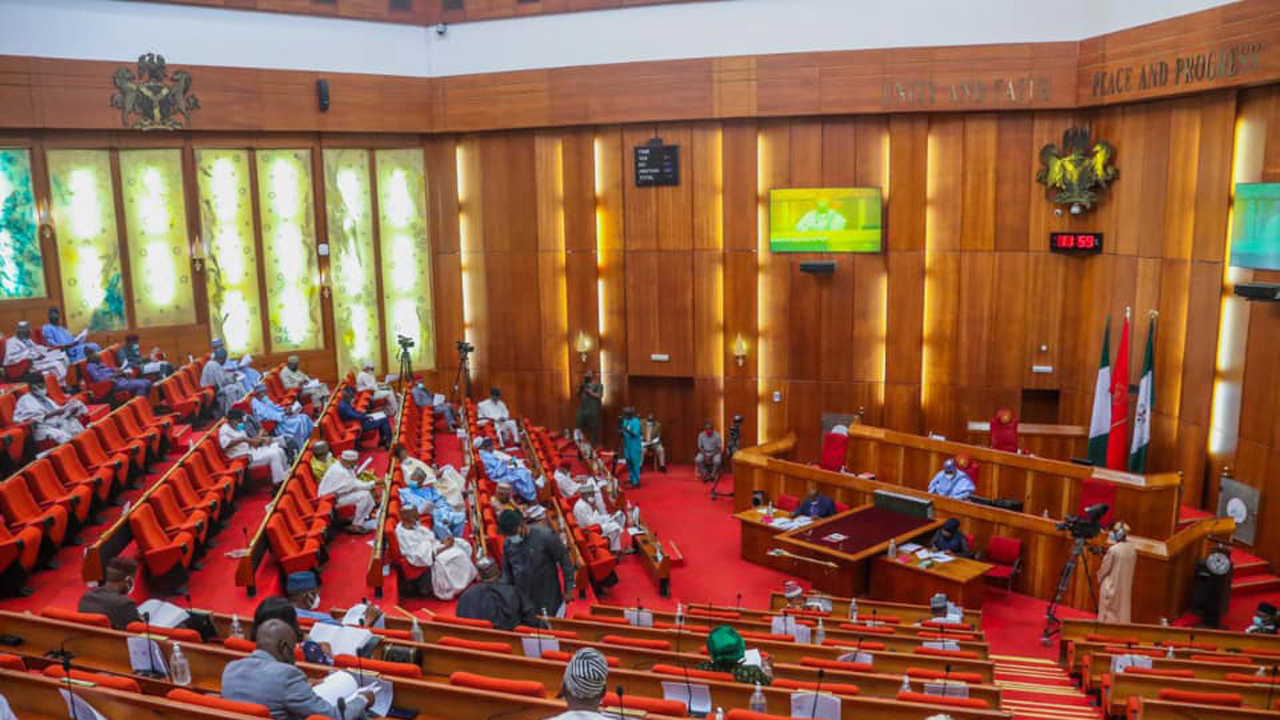
On November 29, 2023, President Bola Tinubu submitted an appropriation bill of N27.5 trillion for 2024 to the National Assembly. Eventually, the budget of N28.78 trillion was passed by the National Assembly and signed into law by the President on January 1, 2024.
In March, Senator Abdul Ningi from Bauchi alleged that the 2024 budget was padded with N3.7 trillion in the National Assembly.
According to Ningi, N25 trillion of the budget was tied to projects, while the N3.7 trillion had no projects attached. His allegation was termed “grievous” by the Senate President, Godswill Akpabio. Ningi was subsequently suspended for three months.
Following Ningi’s budget padding claim, the BudgIT Foundation, a foundation that simplifies Nigeria’s budget, analysed the 2024 budget and shed light on Ningi’s allegations.
On Senate Insertions
In the final budget passed and published by the National Assembly, the comprehensive budget breakdown of some sectors, totalling N3.3 trillion, was omitted. These sectors whose budget breakdown were omitted are: government-owned enterprises, with a budget of N1.8 trillion; the National Assembly – N344.8 billion; the National Judicial Council – N341.6 billion; the Public Complaints Commission – N14.4 billion; the Independent National Electoral Commission (INEC) – N40 billion; and the Tertiary Education Trust Fund (TETFund) – N700 billion.
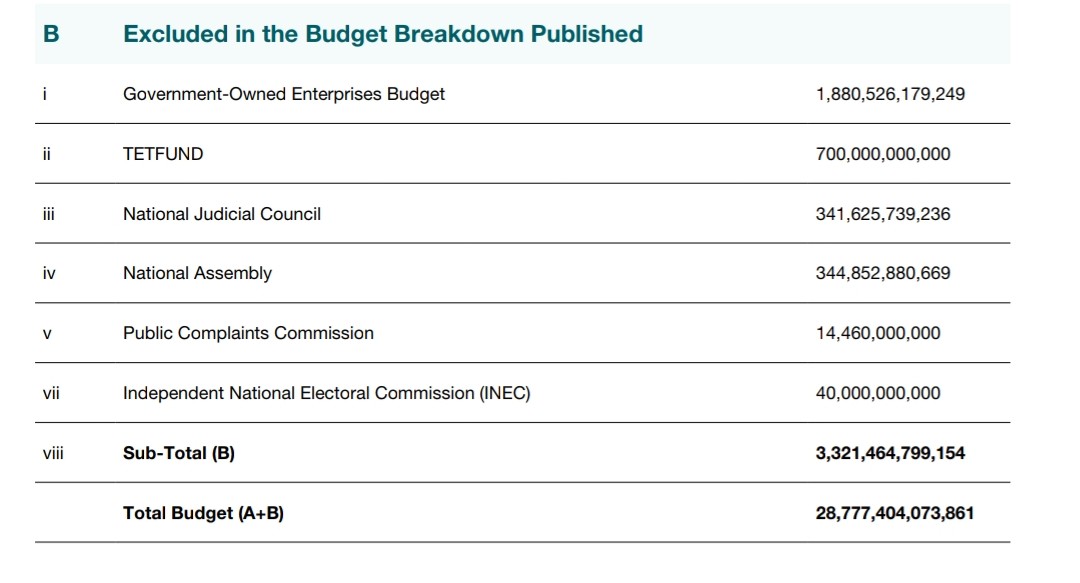
Why would the expenditure breakdown of these budgets be approved without details on how the apportioned funds would be used in these various sectors? What, then, is the essence of a budget? The national budget is supposed to be as transparent as possible.
Constituted with the power to add new projects or make allocations to the existing national budget, the National Assembly increased the capital expenditure budget by N2.28tn, from the proposed N7.72tn to N9.995tn, according to BudgIT’s report. The report further noted that the National Assembly inserted 7,447 projects – N2.24tn – into the 2024 budget. Some of the projects inserted into the budget are questionable and have no impact on the nation.
The National Assembly has indiscriminately added projects to the budget, with most projects having no national significance but narrowed to personal interests. — BudgIT
In the Executive Budget Proposal, N100 billion was allocated for lawmakers to propose constituency/zonal intervention projects for their constituencies. However, the National Assembly went beyond the earmarked cost.
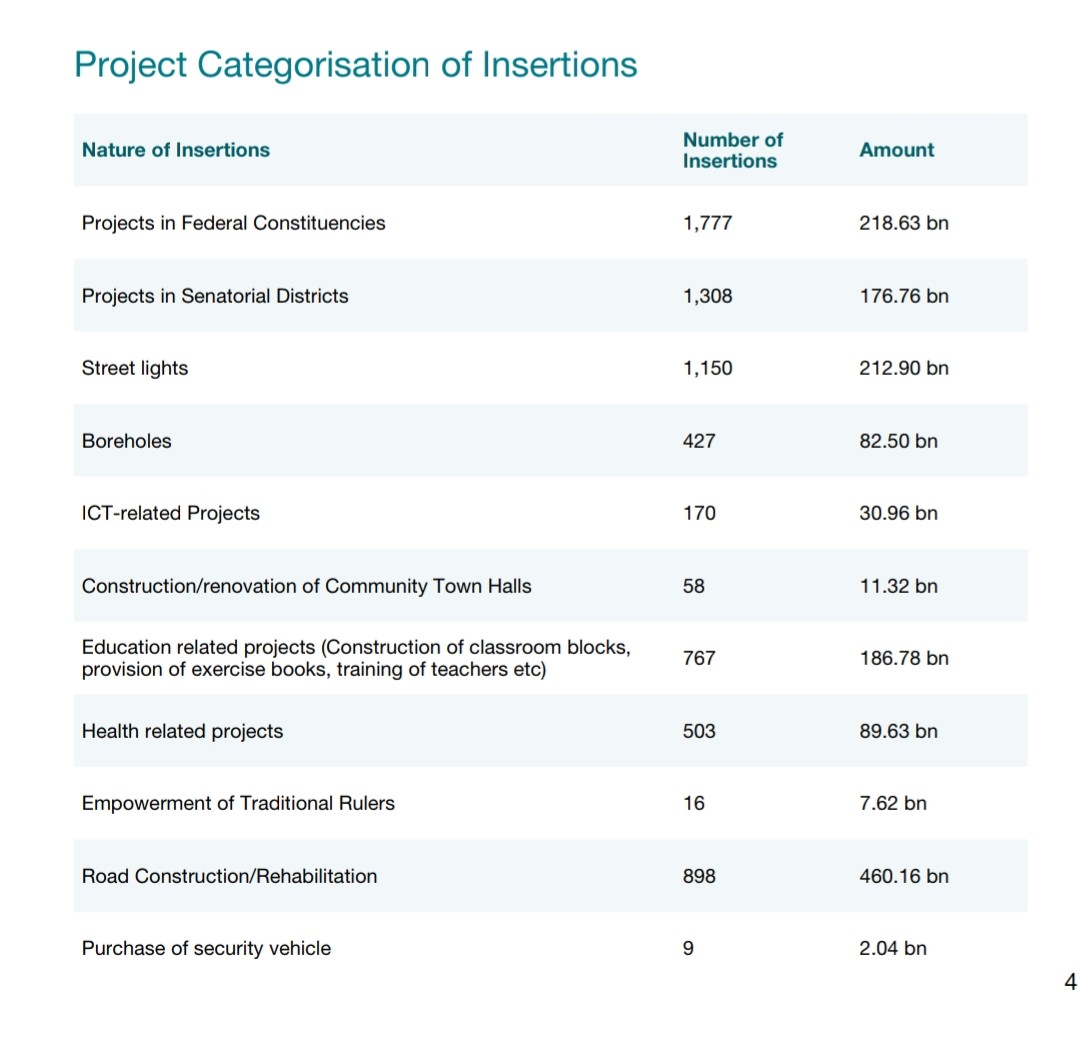
Thousands of constituency projects were inserted by lawmakers in the budgets of 326 Ministries, Departments, and Agencies (MDAs). BudgIT asserted that in most cases, the MDAs neither have the mandate nor the technical capacity to implement and monitor the execution of the projects. For instance, N176 billion (for 1,308 projects) was allocated to the senatorial districts; N212.9 billion was allocated for 1,150 streetlights; and N218.6 billion (for 1,777 projects) was allocated for federal constituencies, among other insertions.
How sure are we that all these projects are going to be accomplished? Are all these projects necessary that they exceeded the N100 billion that was earmarked for the lawmakers to propose constituency/zonal intervention projects? With the current economic challenges bedevilling the nation, lawmakers should have known better how to be prudent in allocating the 2024 budget.
BudgIT’s report also revealed that some agencies and organisations had become targets for lawmakers to insert projects. The two organisations mentioned were the Nigerian Building and Road Research Institute, Lagos, and the Federal Cooperative College, Oji Rivers. The National Assembly allocated projects valued at N110 billion and N90.8 billion to the organisations above, respectively.
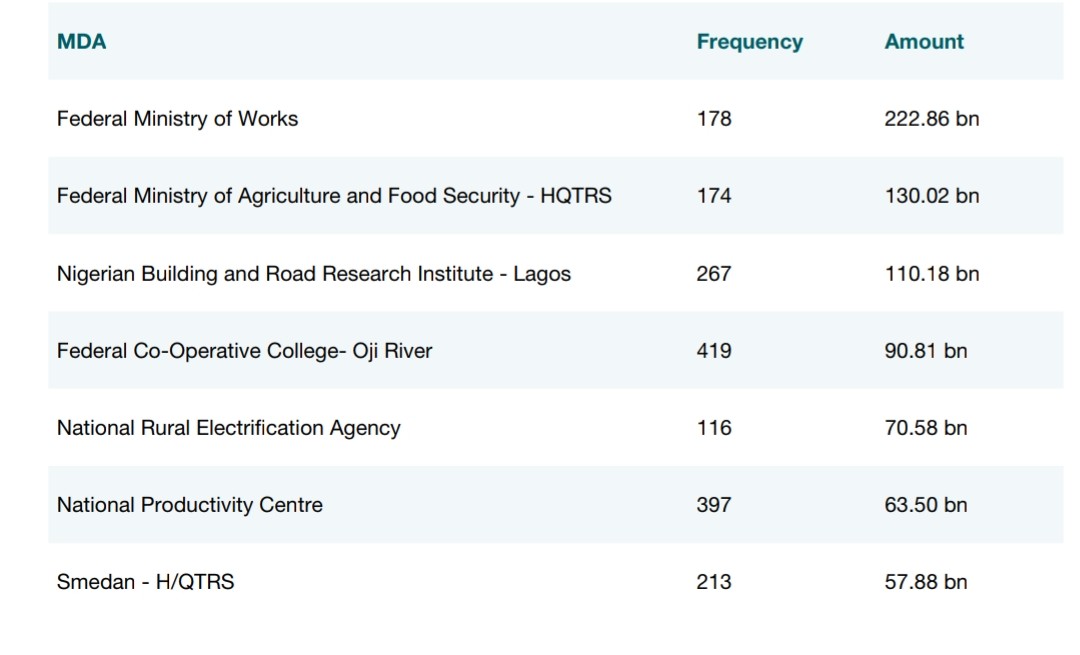
These agencies targeted by lawmakers lack the capacity to carry out the assigned projects, which would lead to poorly done projects and poorly managed funds.
Some of the projects are vague in description, too. For instance, a project like “Construction of Townhall in Selected Communities in South West” is unclear. This project was allocated to the Federal Cooperative College, Oji River, with a budget of N1 billion. No specific number of town halls (to be constructed) was provided.
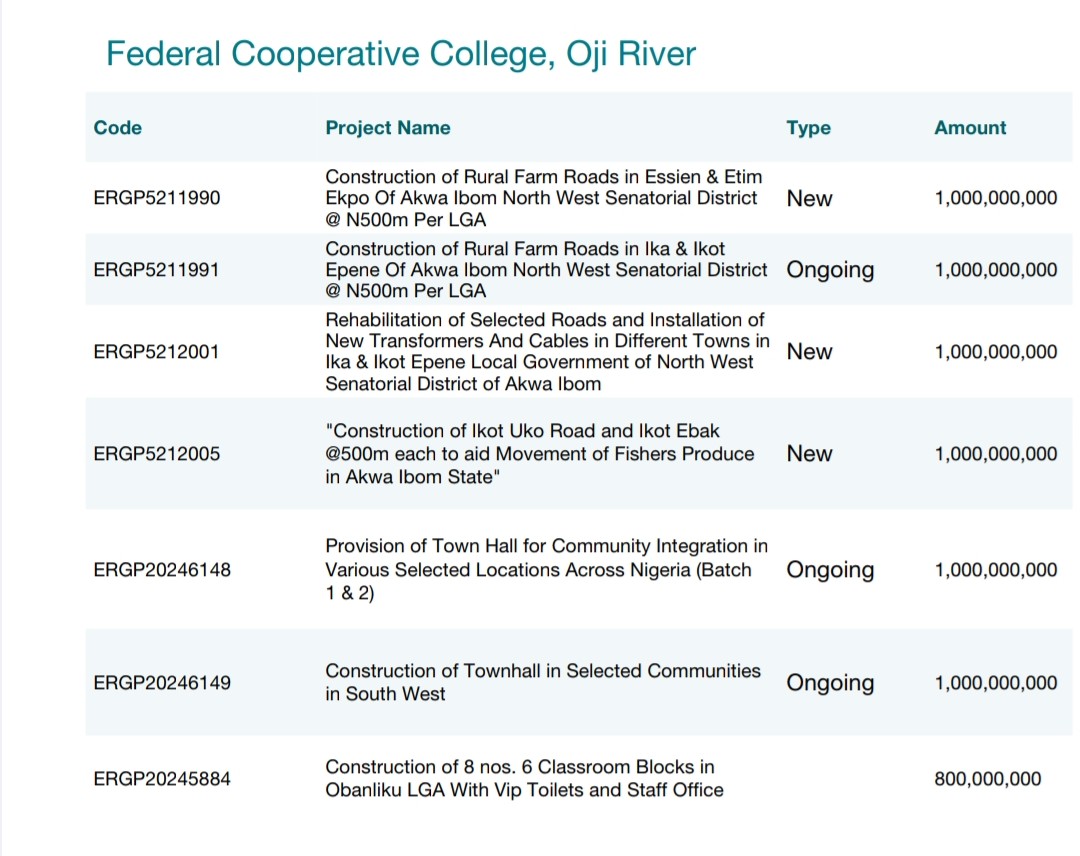
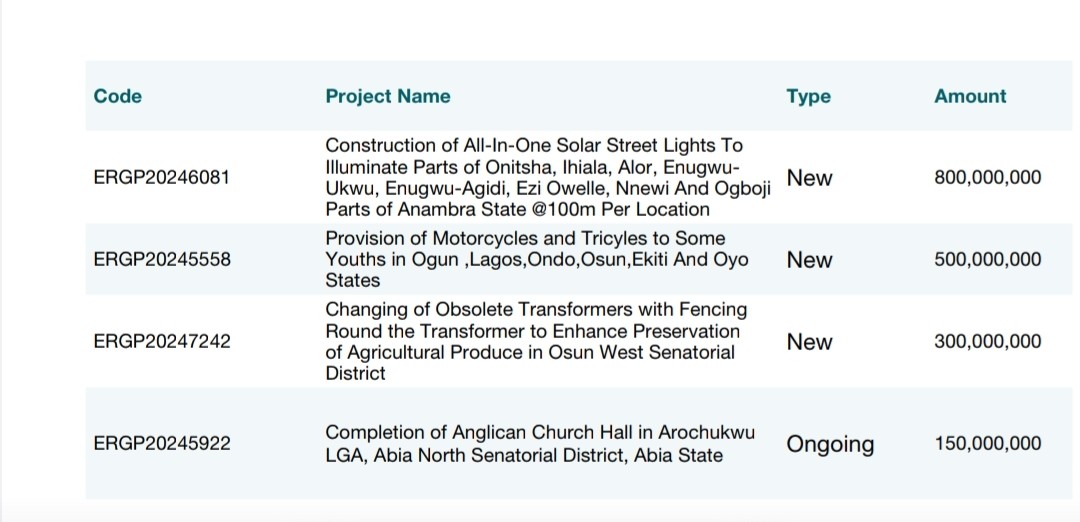
The Way Forward
In response to the alarming revelation of budget padding within Nigeria’s fiscal framework, proactive measures must be devised to safeguard public funds and uphold budgetary integrity. This is especially critical as the nation is undergoing a brutal, prolonged period of inflation.
One way to prevent budget padding and boost accountability is through performance-based budgeting. A total of 7,447 projects amounting to N2.24tn were inserted in the 2024 budget by the National Assembly. So far, it has been established that some of these projects are frivolous and have no national significance.
We advocate a shift towards a performance-based budgeting approach that prioritises project and program funding based on anticipated impact and outcomes. Government agencies that receive allocations should be mandated to set clear performance targets and regularly report on their progress. In addition, a specialised committee tasked with scrutinising budget proposals to identify and eliminate frivolous or duplicative projects should be established. This committee should comprise experts from various fields, including finance, economics, and governance.
Citizen engagement in the budgeting process should equally be encouraged. Through town hall meetings, public consultations, and online platforms, the government should solicit input from citizens and civil society organisations to identify priority areas for budget allocation and to scrutinise proposed projects for relevance and feasibility. The input and scrutiny of the citizenry can prevent unwarranted insertions by the National Assembly and ensure transparency and accountability.
Furthermore, the nation should also enhance the oversight functions of relevant government agencies, such as the Office of the Auditor General, to conduct regular audits of budget implementation. These agencies should be empowered with adequate resources and authority to investigate instances of budget padding and hold accountable those responsible.
BudgIT suggested in its review that the Judiciary should provide a final pronouncement on the extent of the National Assembly’s appropriation powers, particularly regarding inserting new projects into the budget without executive oversight. This clarity would establish boundaries and discourage arbitrary insertions.
Finally, the Economic and Financial Crimes Commission (EFCC) and the Independent Corrupt Practices and Other Related Offences Commission (ICPC) must promptly prosecute cases of budget-related corruption.
By implementing these suggestions and recommendations, Nigeria can strengthen its fiscal management practices and promote budget transparency.
Read: Venice Biennale 2024: Diverse Themes Explored by 13 African Nations
About The Author
Related Articles
Africa’s Stolen Wealth: The West’s Two-Faced War On Corruption, Condemning In Public, Laundering the Continent’s Future In Practice
While international bodies and Western governments publicly commit to combating illicit financial...
ByWest Africa WeeklySeptember 6, 2025When Power Breeds Madness: APC’s Culture of Reckless Rhetoric
In a country battling economic collapse, insecurity, and deep mistrust in governance,...
ByWest Africa WeeklyAugust 31, 2025Tribalism Is Not African: Africa’s Wounds Were Carved In Western Boardrooms And Remain A Colonial Tool Still In Use
The narrative of “tribal conflicts” plaguing Africa, often portrayed as an inherent,...
ByWest Africa WeeklyAugust 30, 2025Tinubu’s Nigeria: A Nation Held Hostage by Failure
When Bola Tinubu was sworn in as President in May 2023, Nigerians...
ByWest Africa WeeklyAugust 9, 2025







